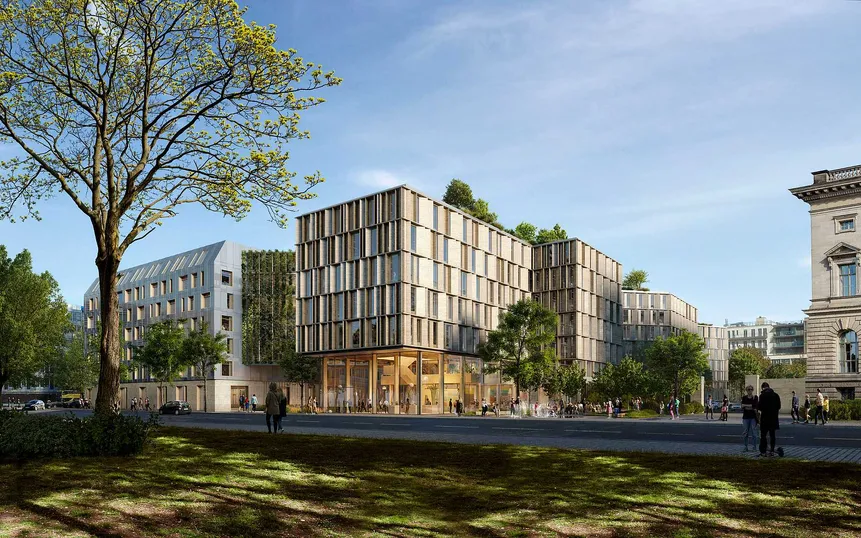Expansion Bundesministerium für Umwelt, Naturschutz, nukleare Sicherheit & Verbraucherschutz BMUV, Berlin, Germany

The extension for the German Federal Ministry for the Environment, Nature Conservation, Nuclear Safety and Consumer Protection (BMUV) is a sustainable timber building with, among other things, façade-integrated solar panels, optimal use of daylight and communal green spaces.
The design's guiding idea is to create an open building structure with green outdoor spaces in the center of Berlin that adds new quality to the site while meeting high standards for sustainability, security, and integration of historical traces.
To keep the carbon footprint low, one goal was to keep the level of mechanization low, but at the same time attention was paid to providing the best comfort for the users.
The supply of heating and cooling is developed with the objective of maximum energy efficiency in order to make the best use of local energy potentials and to integrate district heating.
To ensure optimal daylight conditions and views, the office spaces were optimized for solar radiation, natural ventilation, and site geometry.
For this purpose, Transsolar conducted studies on daylighting, considering the geometric structural self-shading and neighboring buildings, and also evaluated the facades in terms of thermal comfort.
The building's branched structure provides prominent gables and creates outward-facing courtyards that provide optimal outdoor access and air exchange for all spaces.
These courtyards also serve as circulation. Open staircases connect the ground floor with the office floors and the roof garden via four glazed atriums. On each floor, a lounge area in each office wing serves as a meeting place for breaks and the exchange of knowledge and ideas. With a conference center and library on the first floor, which is also designed as modern alternative workspace, the design offers flexibility of use.
Part of the complex complements the existing perimeter block development of the BMU with cladding of natural stone and photovoltaic panels. Thanks to the PV integration into the façade, the building generates renewable electrical power and the roof area of the other incorporated part stays free for a large-scale roof garden, which, together with the landscaped courtyards, ensures a positive contribution to the cityscape.